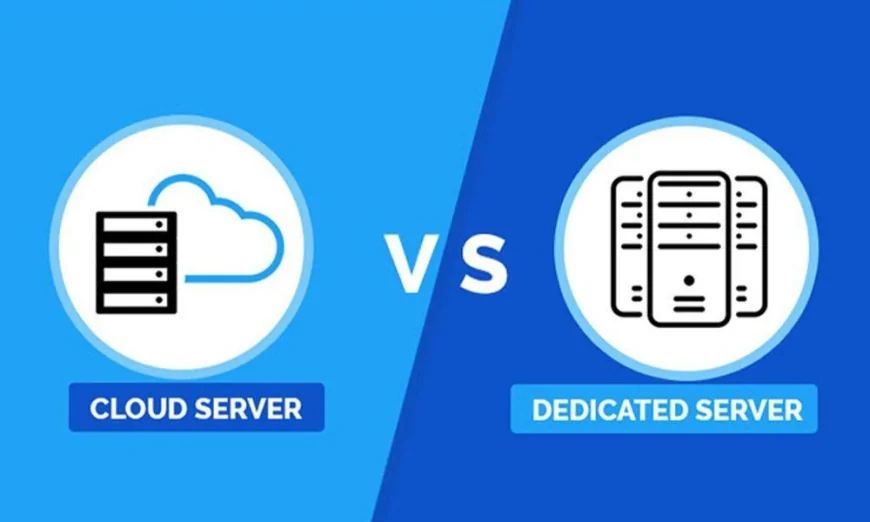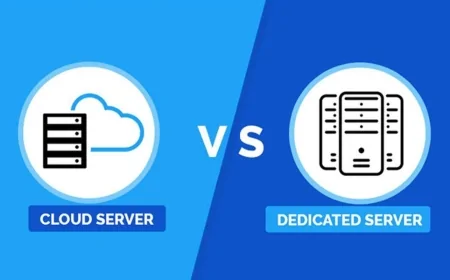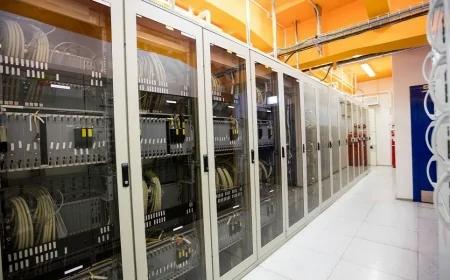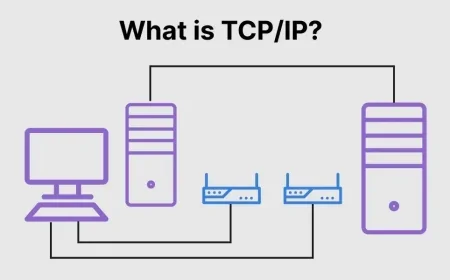Cloud Server vs Dedicated Server: Understand Your Requirements
Every organization wants to make its global imprint via the Internet in this fast computing era. Each organization's website needs to be hosted somewhere with reliable uptime, greater bandwidth, and the lowest possible investments.

Every organization wants to mark its global imprint via the Internet in this fast computing era. Each organization has its website that needs to be hosted somewhere with reliable uptime, greater bandwidth, and the lowest possible investments. To meet all these requirements, choosing a perfect dedicated web hosting provider is of paramount importance. With the current update of an algorithm introduced by Google, which now considers the page speed as one of the important page ranking factors, the risk of losing customers even by a one-second difference in response time has increased up to 7%. The consequences might freak out various customers if they consider the number of consumers leaving their pages because of their load time, plus their website ranking, which suffers. Let us understand the differences between the two most popular web hosting choices: Cloud Server – Public Cloud, Hybrid Cloud, Private Cloud, versus Dedicated server hosting – Linux hosting, Windows hosting.
Cloud server hosting and Managed Dedicated Server hosting by comparing their Pros and Cons-
Functionalities of Cloud Server Hosting
- In cloud hosting technologies, N numbers of servers can act as a single entity. The data is stored in a virtual environment that draws various resources from different physical hubs located in different geographical areas across the globe. These hubs are servers that are connected to share their resources in those virtual spaces and are referred to as clouds.
- The cloud server hosting is a virtualized hosting platform that offers immense flexibility while hosting. A single cloud instance includes multiple web servers that offer resources to the same virtual space. A client pays exactly for that virtual space and is not allowed to access the operating system of any of the cloud’s web servers.
Functionalities of Dedicated Server Hosting
- Managed dedicated server hosting includes just a single client on a physical server. The resources available on that server can only be accessed by the client who either leases or buys the physical hardware. Resources of the dedicated servers are also customizable as per the client’s requirement, including storage, RAM, and bandwidth.
Similarities between Cloud Server and Dedicated Server Hosting
Apart from performing similar operations, such as storing, receiving, processing, and acknowledging the requests at their core levels, the cloud and dedicated servers also share these similarities among themselves:
- Processing heavy traffic without any technical glitch or performance lag
- Receiving, processing, and acknowledging information to users with industry-standard response time
- Protecting the authenticity of stored data
- Ensuring web application stability
Nowadays, advanced cloud hosting and dedicated servers are capable enough to support almost any service and application. They are managed well using proficient back-end tools and run on similar software. The user must opt proper solution for an application to save money, improve scalability, and flexibility, and utilize the maximum resources.
Differences between Cloud Server Hosting and Dedicated Server Hosting
Of course, certain features distinguish both the hosting technologies and they differ broadly in terms of performance, scalability, migration, management (operations and administration), and pricing. Let us discuss them individually.
Performance
Dedicated Servers are most preferable for industries that demand data retrieval and fast computing. As they are committed to processing data locally, they do not experience a great deal of performance lag while processing information at all. The computing speed is evident for industries like e-commerce, where every 1/10th of a second matters. On the other hand, cloud servers go through SAN to access data that traverses the process to the back end of the infrastructure. The request then traverses across the hypervisor, which again adds to an extra level of latency that cannot be reduced.
Scalability
- Dedicated servers scale very differently from cloud-based servers. The physical hardware has a limited number of Distributed Antenna System (DAS) arrays, or mostly referred to as drive-bays, available on the server, which are more difficult to hot swap.
- In contrast, cloud server storage is more flexible, and it does not incur any downtime while expanding the storage in a cloud server environment.
Migration
- It is very much possible to achieve seamless migration in both cloud hosting technologies. Dedicated server hosting requires more planning during migration, as the user has to be conscious of both the future and current growth of the organization, which eventually requires a full-scale plan to be created and implemented.
- In cloud server migration, both the old and new solutions can concurrently run until the new server is completely ready to take over. It maintains the older servers as a backup and tests out the new solutions adequately to support a hassle-free migration.
Server Management
- The in-house staff understand the system administration more closely in the case of dedicated server hosting, which requires them to monitor all its dedicated hardware. Scaling, upgrade, and maintenance are all very closely knitted requirements to keep the server downtime to a minimum and require careful engineering.
- In the case of a cloud server, scalability is achieved with less impact on operations, and it is more accessible to administer. The dedicated server requires proper planning to estimate server requirements, the cloud servers require planning to work around to reduce the limitations that could incur.
Pricing
Cloud servers are comparatively less pricey than Dedicated Web Servers. However, the price of cloud servers increases with the increasing demand of users in terms of scalability and resource requirements. Since dedicated servers can be upgraded, the cost differs from vendor to vendor. Cloud servers are billed on a monthly operating expenses (OpEx) model. Whereas, the dedicated servers are usually billed on the capital expenditure (CapEx) model.
Cloud Servers vs Dedicated Servers: The Choice is Yours
It is very important to match the needs of your business and its configuration while deciding on which server to go with for the computing platform. Choose wisely as the computing needs must complement the operating procedures, scalability, and cost-effectiveness of your enterprise solution. You must select one over the others by considering the advantages of each solution, your business needs, and the future scalability of your organization.
If you are also confused about the server hosting services for your enterprise, you can seek help from AKLWEB HOST Networks, a dedicated web hosting and multifarious cloud services provider, located in Noida with 20+ years of business experience and expertise. Our team of dedicated IT professionals is ready to help you around the clock. You can either share your queries at (+1) 332-244-2280 or drop a mail at sales@aklwebhost.com.
What's Your Reaction?
 Like
1
Like
1
 Dislike
0
Dislike
0
 Love
0
Love
0
 Funny
0
Funny
0
 Angry
0
Angry
0
 Sad
0
Sad
0
 Wow
0
Wow
0











































